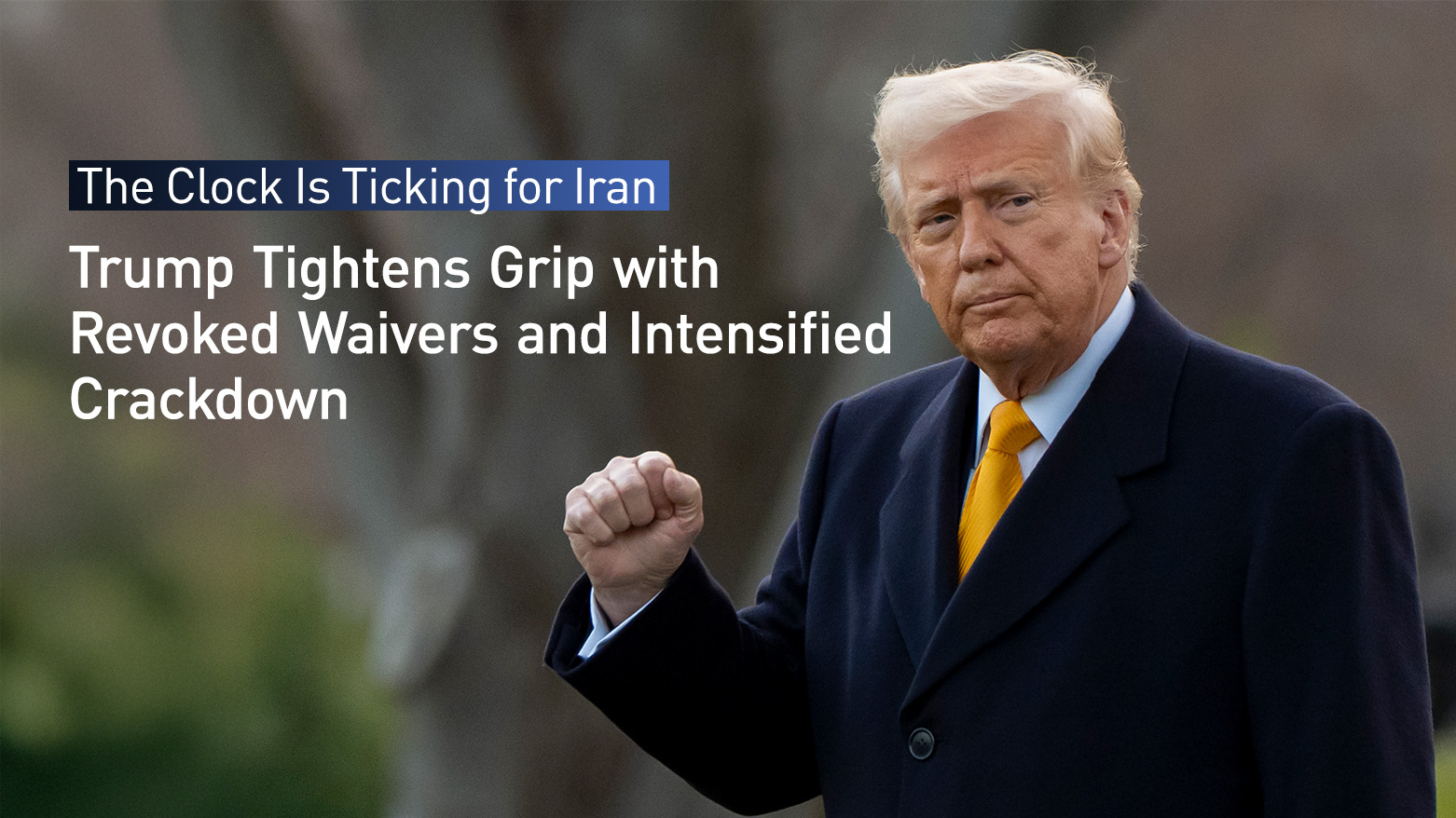The Clock Is Ticking for Iran: Trump Tightens Grip with Revoked Waivers and Intensified Crackdown
"Our goal is to end Iran’s nuclear threat, curtail its ballistic missile program, and stop it from supporting terrorist groups," the spokesperson added.

ERBIL (Kurdistan24) – In a significant escalation of its "maximum pressure" campaign against Tehran, the Trump administration rescinded a critical waiver on Saturday that had previously allowed Iraq to pay Iran for electricity, a State Department spokesperson confirmed to Reuters.
The move is part of a broader strategy aimed at economically isolating Iran and preventing financial relief that could bolster its nuclear and military ambitions. However, as is customary, no official confirmation of this decision has been posted to any U.S. government website.
White House Warns Iran: "Negotiate or Face Consequences"
Amid rising tensions, the White House issued a stark response to Iran’s Supreme Leader, Ayatollah Ali Khamenei, who firmly rejected President Donald Trump’s call for negotiations on Iran’s nuclear program. According to Israel National News, White House National Security Council spokesman Brian Hughes reiterated Trump’s ultimatum, stating, "We hope the Iran Regime puts its people and best interests ahead of terror." His comments mirrored Trump’s earlier warning that Iran must either negotiate or face alternative measures. Notably, no official statement regarding this response has been published on a U.S. government website.
The diplomatic standoff intensified after Khamenei declared that Iran would not be "bullied" into talks, accusing the U.S. of imposing unrealistic demands. "The U.S. is bringing up new demands that certainly will not be accepted by Iran, like our defense capabilities, missile range, and international influence," Khamenei stated, as reported by Iranian state media. He dismissed negotiations as a pretext for Washington to pressure Tehran into further concessions, asserting that Iran "will definitely not accept their expectations."
Trump’s Stark Warning: "Something’s Going to Happen Soon"
On Friday, Trump told Fox News that he had sent a letter to Khamenei urging negotiations, cautioning that failure to reach a deal could have severe consequences. "If Iran doesn’t negotiate, it will be very ugly for them," Trump warned. "Iran can’t have nukes. Other options are available."
Later that day, Trump hinted at impending action against Iran, telling reporters at the Oval Office, "We have a situation with Iran that something’s going to happen very soon, very, very soon. You'll be talking about that pretty soon, I guess." While emphasizing his preference for a diplomatic resolution, Trump underscored that alternative measures remain on the table should Tehran refuse to engage.
Reviving the "Maximum Pressure" Strategy
The Trump administration’s latest measures reflect a return to the aggressive economic sanctions that defined his first term. In a renewed push, Washington has reinforced economic penalties aimed at crippling Iran’s revenue streams and weakening its influence in the region. The State Department spokesperson told Reuters that ending Iraq’s waiver was crucial to denying Tehran "any degree of economic or financial relief."
"Our goal is to end Iran’s nuclear threat, curtail its ballistic missile program, and stop it from supporting terrorist groups," the spokesperson added.
America’s Unyielding Stance Against Iranian Aggression
Under President Trump’s leadership, the U.S. has taken a firm position against Iran’s destabilizing activities, enforcing severe economic sanctions and deploying a no-tolerance approach to nuclear proliferation.
Trump’s maximum pressure campaign, which began with the withdrawal from the Joint Comprehensive Plan of Action (JCPOA) in 2018, has systematically targeted Iran’s economic lifelines, crippling its ability to finance militant proxies and advance its ballistic missile program.
By severing Iran’s access to global markets and energy revenues, Washington has intensified the pressure on Tehran’s leadership, seeking to force a fundamental shift in its regional policies. The revocation of waivers allowing Iraq to pay Iran for electricity is the latest measure aimed at cutting off financial channels that could sustain Tehran’s influence across the Middle East.
The administration’s policy underscores a commitment to preventing Iran from attaining nuclear capabilities while ensuring the security of U.S. allies, particularly Israel and Gulf partners, who view Iran’s ambitions as an existential threat.
As diplomatic avenues narrow and military options remain on the table, the standoff escalates, leaving Tehran with dwindling leverage and a stark choice between compliance or intensified confrontation.
